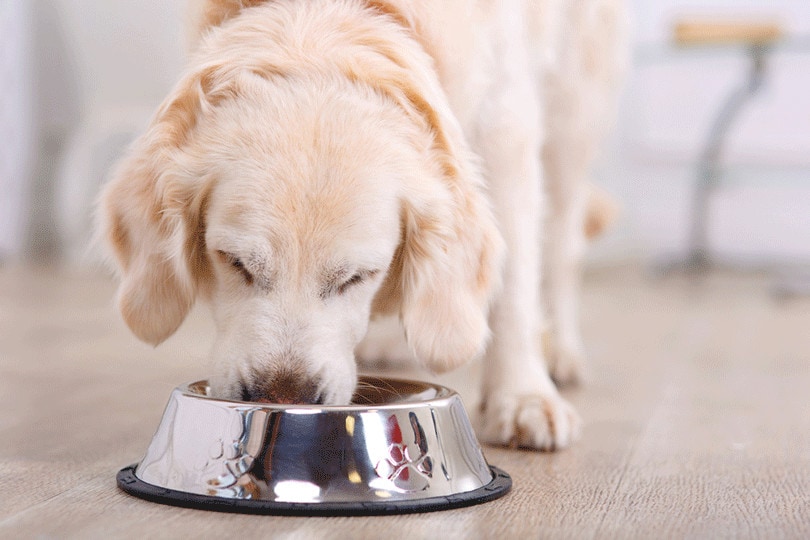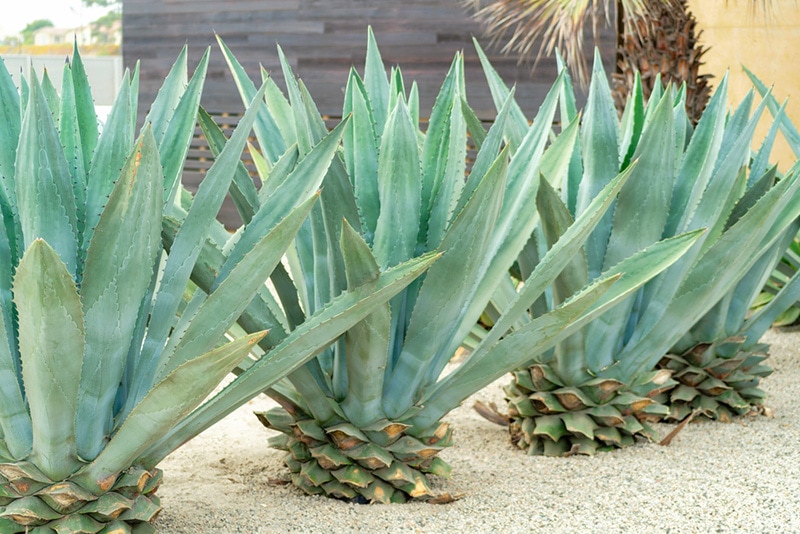You may have noticed that your dog tends to eat more as the season grows colder, and you may be wondering if that is normal. Don’t worry; it is perfectly normal for dogs to be hungrier in the winter. As the temperatures grow colder and the days grow shorter, your dog will eat more than usual.
But why does your dog eat more in the winter? And is it really necessary? If you want to prepare yourself and your pup for the winter season, keep reading to learn more.
Does Your Dog Need to Eat More Calories in Winter?
Yes, your dog generally needs to eat more calories in winter. But the longer answer is a bit more complicated, so stick with us.
Whether or not you need to alter your dog’s diet for the winter months depends greatly on your dog’s daily habits, particularly how much time your dog spends outdoors. If your dog spends prolonged periods outdoors where the temperatures plummet, he will likely shiver. Shivering can burn a lot of calories1, meaning your dog will burn off calories quicker than usual. In this instance, you should feed your dog a little more in the winter. However, added calories may not be necessary if your dog stays inside for most of the cold season in a temperature-controlled environment.
Another factor to consider is how much exercise your dog will be getting. If you expect to exercise your dog as usual with walks or outdoor play, you may want to increase his calorie intake. However, if you anticipate that the cold will keep you indoors with comparatively little activity, increasing your pet’s caloric intake may cause your dog to gain weight.
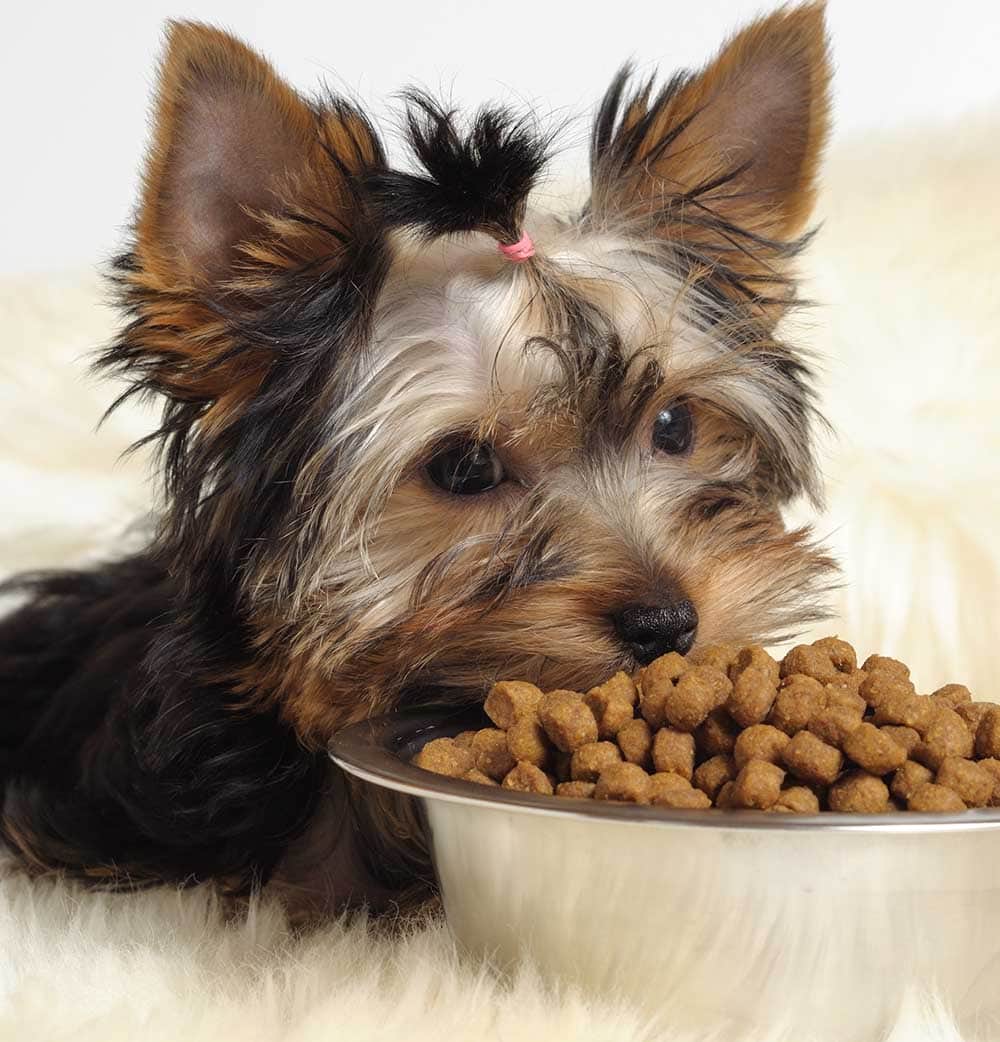
How Does Limited Sunlight Affect Your Dog’s Weight?
Cold temperatures aren’t the only seasonal change that impacts your dog. The limited daylight may also affect his metabolism. As the days grow shorter, your dog’s metabolism will begin to slow down. This is a leftover function from when dogs spent most of their time outdoors and would need extra layers of fat to insulate them during the cold, dark days.
So, even if you keep your dog indoors in a temperature-controlled environment, there is a chance that he will still gain a little extra weight. You will want to watch out for any weight gain and adjust your dog’s diet.
How to Determine How Many Calories Your Dog Needs
Some dogs may lose weight, while others may gain weight. Individual dogs will have their own unique needs. Monitoring your dog’s food intake and weight to determine what adjustments need to be made is the best way to maintain a healthy weight for your dog.
The daily calories that your dog needs will be largely influenced by his routines as well as his size. Below is a chart to give you a guideline for how many calories your dog should consume regularly.
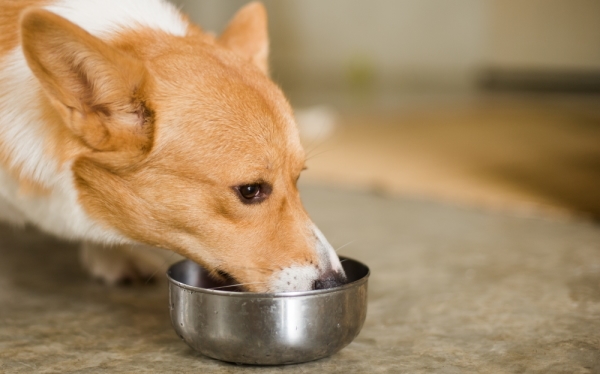
Daily Calories Needed for Indoor Dogs
| Your Dog’s Weight | Daily Calories |
| 10 pounds | 200 to 275 calories |
| 20 pounds | 325 to 400 calories |
| 50 pounds | 700 to 900 calories |
| 70 pounds | 900 to 1,050 calories |
| 90 pounds | 1,100 to 1,350 calories |
The best way to determine a healthy caloric intake and weight for your dog is to consult your veterinarian regularly. Your vet will be able to evaluate your dog and give you a specific weight goal and nutrition plan.
But for the sake of regular, ongoing monitoring, you can examine your dog based on a BCS score1. A BCS score is essentially the pet equivalent of a human’s BMI score. It is a quantitative (although subjective) scoring method used to determine how much body fat your dog has.
This scoring method can get tricky because different breeds of dogs have drastically varying body types. So, while the BCS score can be a helpful tool, you should still reach out to your vet for a more precise analysis of your dog’s weight.
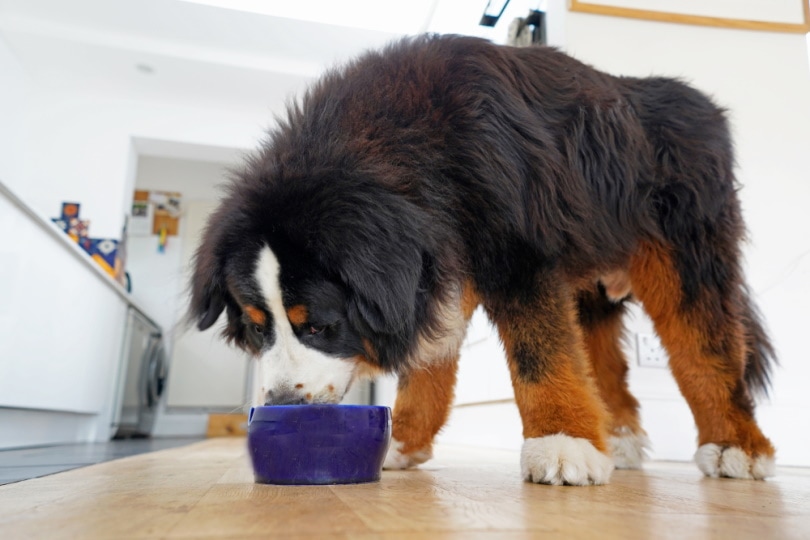
Other Ways to Care for Your Dog in the Winter
As the chilly season grows colder, pay attention to these suggestions for maintaining your dog’s health.
Watch the Paws
Paws can be highly susceptible to frostbite1. Frostbite can damage the skin and other tissues, so it is crucial to catch any signs of frostbite early. If you suspect your dog has frostbite, reach out to your vet right away.
Signs that your dog has developed frostbite include discoloration of the skin, coldness to the touch, blisters, or even blackened or dead tissue. Other signs include pain and swelling around the affected areas.
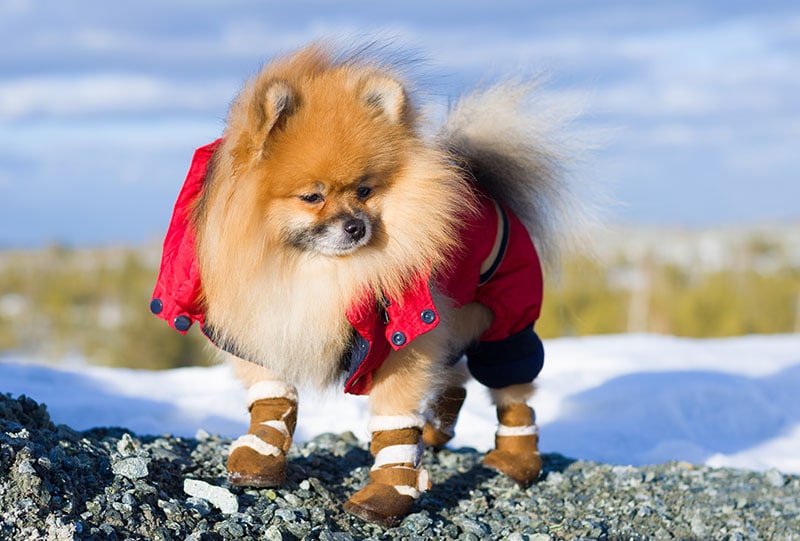
Be Gentle on the Skin
The chilly winter air can be rough on your dog’s skin1, making it flakier and drier than usual. This can cause your dog some itching or discomfort, so you’ll want to be prepared to combat this skin problem.
Adding more essential fatty acids to your dog’s diet is a good way to keep his skin and coat moisturized. Likewise, avoiding areas treated with de-icers will help since the chemicals are rough on your dog’s skin.
Conclusion
Winter can come with plenty of challenges for yourself and your dog. While working to fight through your winter sluggishness, don’t forget that your dog may be having the same battle. Your dog’s metabolism may shift, leading to a whole array of changes in his body. The best way to help your dog maintain a healthy weight during the winter months is to consult your vet, create a dietary plan, and be prepared.
Featured Image Credit: Dmytro Zinkevych, Shutterstock

